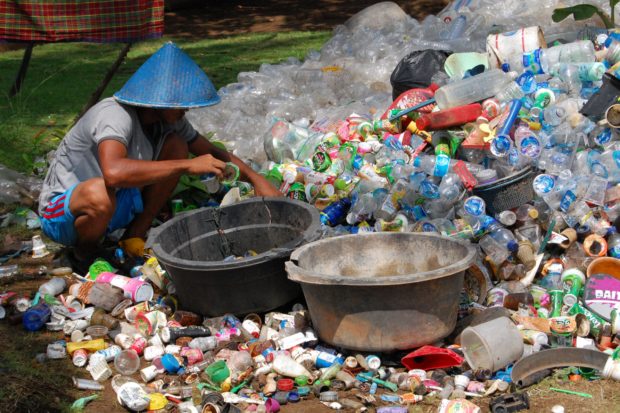
By George B. Kauffman
The most important events in chemistry for the year 2018 are listed and briefly discussed.
In the field of Computational Chemistry, researchers continued to explore applications of machine learning, the type of artificial intelligence used to make predictions or decisions by algorithms that can learn from large data sets. This technology powers self-driving cars and image-recognition software. However, chemists have mixed feelings about the field. Most of them agree that it is a useful field despite overheated enthusiasm from some corners.
In the field of Polymers, discarded plastic waste has been a longstanding problem, and governments around the world have sought ways to curb plastic use and boost recycling efforts, companies invested in technology to recycle certain problematic plastics, and chemists created novel sustainable polymers to cope with the current plastics problem.
In the field of Catalysis, catalysts revealed their molecular-scale secrets. Solid catalysts often in nanoparticular form, drive the overwhelming majority of industry’s major chemical processes. However, many molecular subtleties of these reactions remain unknown and challenge scientists’ ability to improve these catalytic transformations. Researchers designed new nanocatalysts and uncovered mechanistic details about the manner in which they mediate reactions. These findings could help reduce the energy use and cost of some large-scale industrial processes.
In the field of Neuroscience, research into hearing loss mechanisms could lead to better treatments. The edited gene Tmc1 and the protein that it encodes plays a key role in converting sound vibrations to electrical signals, a detail that scientists had been trying to nail down for almost two decades. The molecules could hold promise for treating other forms of hearing damage.
In the field of Solar Power, for more than two decades scientists and engineers have been driven by the tantalizing promise of converting sunlight into electricity with high efficiency using inexpensive materials. In recent years, perovskites have garnered more headlines than any other category of emerging photovoltaics because of their rapid improvement. These types of light-sensitive materials, such as (CH3NH3)PbI3, have the perovskite crystal structure and ABX3 stoichiometry. Further improvements in long-term durability will help to translate these scientific advances into widely used commercial technology.
In the field of Climate Change, hurricanes pounded the Atlantic and Gulf coasts and record-breaking wildfires raged in California. Scientists cautioned that the world must cut carbon emissions soon in order to avoid calamity. Soon it will be too late to prevent some of the worst effects of climate change, including wildfires, flooding, sea level rise, famine and destruction of coral reefs. In October, the Intergovernmental Panel on Climate Change (IPCC) suggested that to prevent these calamities and limit warming to 1.5 degrees Celsius above pre-industrial levels, the figure chosen in the Paris agreement, drastic changes are needed. Scientists say
In the field of Microbiomes, scientists continued to unravel the complicated relationship between human health and the thousands of microbial strains living on and inside our bodies. A number of gut microbe species are affected by even a single course of broad-spectrum antibiotics, making some of our microbial friends help pathogens. It’s obvious that having the wrong overall community of microbes can contribute to a wide range of human diseases.
In the field of Analytical Chemistry, the use of electrons rather than X-rays to determine the structures of biomolecules won the Nobel Prize for chemistry in 2017 for cryo-electron microscopy. However, electrons can also be used to determine the structures of small molecules. Using electron crystallography to analyze microcrystals, chemists in California were able to determine the molecular structures of various organic compounds such as biotin, carbamazepine, cinchonine and brucine. These developments might be ushering a new era of small-molecule organic structure determination.
In the field of Spectroscopy, e-cigarettes have exploded in popularity among teenagers despite federal regulations barring them from anyone under 18 years of age. Whereas e-cigarette maker Juul claims that its product is intended to help tobacco smokers quit, it adds e-liquid flavors such as mint and mango.
*****
George B. Kauffman, Ph.D., chemistry professor emeritus at Fresno State and a Guggenheim Fellow, is a recipient of the American Chemical Society’s George C. Pimentel Award in Chemical Education, the Helen M. Free Award for Public Outreach and the Award for Research at an Undergraduate Institution, and numerous domestic and international honors. In 2002 and 2011, he was appointed a Fellow of the American Association for the Advancement of Science and the American Chemical Society, respectively.
